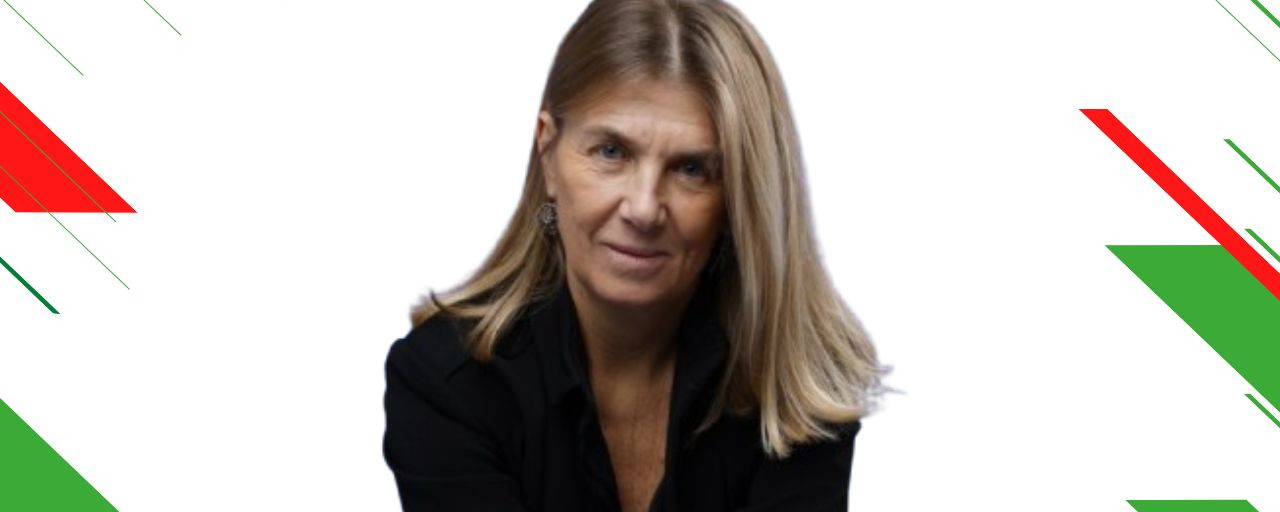Antonella Grassigli is the co-founder and CEO of Doorway SB. With a professional background as a chartered accountant and auditor, Antonella is also a fervent supporter of female entrepreneurship and diversity in the technology and financial sectors. As an angel investor, she is a member of numerous networks, including Italian Angels for Growth (IAG) and Club degli Investitori, which awarded her the “Business Angel of the Year” prize in 2021. In addition, she is co-founder of Angels4Women, an initiative that promotes the growth of women-led businesses and the participation of women in angel investments.
A graduate in Economics from the University of Bologna, Antonella has over 30 years' experience as a Chartered Accountant and Business Consultant, as well as a solid international background. She also owns a professional studio in Bologna and Milan, specializing in strategic assistance to companies and start-ups.
Can you tell us about your educational and professional background and how you approached the world of angel investing?
I have been close to entrepreneurs for years as a consultant, helping and facilitating business development. I discovered the world of angel investing in 2016 thanks to a friend and business angel, who invited me to attend one of the meetings of Italian Angels for Growth: I have to say that that meeting really changed my life, as until that moment I had no idea what angel investing, and the world of innovation was, and I was totally fascinated! From that moment on, I made some investments and then, together with other business angels, I decided to create Doorway, a technology platform created to facilitate direct Venture Capital investments.
How has your experience as a Certified Public Accountant and Auditor influenced your work as an entrepreneur and investor?
My professional training and the habit of talking to entrepreneurs to try to understand different business models has been very useful to me. Checking the consistency of the economic and financial assumptions and the rules of engagement with investors (i.e. the Termsheet) is also something I always check when I decide to make an investment. Obviously assessing the whole context and the credibility of the founding team.
You have worked with many start-ups and entrepreneurs. Is there an example of success that has particularly inspired or motivated you?
I have worked with and/or invested in over 40 startups/scaleups and I must say that I have learnt a lot from each one: I could cite many examples of resilience and determination to change the ecosystem! Three entrepreneurs I am most proud of are the founders of ACBC, Smartpricing and Joinrs: they all combine technological innovation with sustainability. However, I am very disappointed because there is no female entrepreneur I have invested in that I can name.
What is your vision for the future of Doorway? How do you see the fintech sector evolving over the next five years?
Fintech has had a lot of hype in recent years, and now the time has come to demonstrate economic sustainability: this will lead to a consolidation of the market and a growth in the size of start-ups. I think it is crucial for Doorway to become a European player, also thanks to the new regulations, and to give all potential investors the opportunity to make cross-border investment choices: after all, venture capital is by nature global and not tied to a single market.
Co-founder of Angels4Women. How do you think the landscape of female entrepreneurship is evolving in Italy and what are the biggest challenges you still face?
As I was saying, unfortunately in my experience and from what the statistics say, female entrepreneurship, innovative and otherwise, still has very few examples of success. Moreover, it is inevitable when start-ups founded by women are financed much less than others, and this is because venture capital funds in which there is a female partner are still very few, in Italy and in Europe. So, the first challenge is to increase the capital made available to female entrepreneurs, breaking out of the typical pattern. Another challenge is that women themselves must begin to invest in venture capital and take risks on their own: supporting female entrepreneurs in words is fair enough, but then we must take concrete action to ensure that the system changes. And if it is not us who trigger the change, I don't see how we can expect it from others!
How do you think financial education can be improved, especially among women and young people, to foster greater participation in investments?
Certainly, financial education and active, non-delegated management of one's financial position is the first rule to be free: financial awareness and consequent responsibility is the only defence even against possible abuse. We must therefore be committed to fostering awareness of angel investing because it is a way to learn and at the same time commit to other entrepreneurs.
To conclude, as an inspirational figure and role model for many women in the financial sector, what advice would you give to those aspiring to enter the world of finance and venture capital, either as entrepreneurs or investors?
The only advice I would give is to be courageous, not to be afraid of making mistakes and getting involved, not to remain tied to the status quo, but to have the courage to take risks and also to lose money: when I invest, I always think that my money is being used to build new companies, which will lead to the growth of the innovation ecosystem. Clearly, I don't like the risk of failing an investment, but the risk is more than compensated for by what you learn and what you contribute to.








